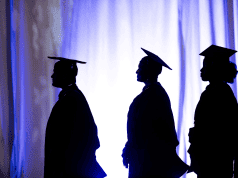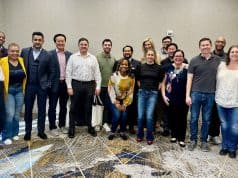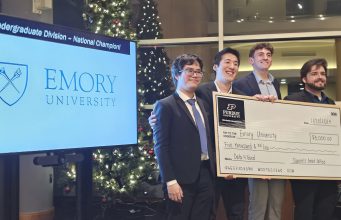
According to research from Kathryn Kadous, McIntyre term chair and professor of accounting at Goizueta, the accounting world has yet to deal with how auditors’ workflow and the unconscious biases that it produces impact their work. In a research paper titled “Auditor mindsets and audits of complex estimates,” Kadous and co-authors discovered that an unconscious bias—a lack of professional skepticism—inhibits auditors’ ability to spot problems in the financial statements.
To sign off on financial statements of public companies, top auditors gather information from the company itself, from multiple auditors working under them, and from outside specialists hired by the company and the auditing firm. Auditors use this information to determine whether estimates in corporate financial statements are reasonable, yet their conclusions can be wrong if they fail to question the sources of this information or fail to notice inconsistencies across information.
Kadous’s work centers on the psychological process of accounting and auditing work. “My research focuses on how auditors make judgments about the most complex accounts on financial statements—complex estimates,” she says. Estimates are required for important accounts on the financial statements, including investments and securities, goodwill, allowance for loan losses, intangibles, and more. “This part of the auditor’s job requires considerable judgment, and regulators and researchers, as well as auditors themselves, have been clear that auditors need help in this area,” she says.
Kadous has an insider’s knowledge of the profession, having worked as an accountant herself, and is motivated to better understand how to improve the industry. “Regulators and inspections have made the industry take a step back and look at itself more honestly,” she says. The Sarbanes-Oxley Act of 2002 and its creation of the Public Company Accounting Oversight Board (PCAOB), which provides independent oversight of auditors of US public companies, has improved audit quality, and partners are held accountable for deficiencies. But unconscious bias is a pressing problem that the profession has yet to address.
Her research also looks at how the evolution of the profession has had a role in causing current judgment problems. In the paper “Audits of complex estimates as verification of management numbers: How institutional pressures shape practice,” she and co-authors argue that because auditors are no longer involved in the underlying work that outside specialists now do, they find it difficult to take the broader view of the information collected, which is necessary for high-quality judgment. Kadous adds: “Technology has certainly changed the nature of accounting. Those changes have helped the outsourcing of minor accounting work, but this may cause problems down the line if auditors are not careful to take a broad view.”
She acknowledges the complicated nature of the job and the constant and growing demands placed on auditors. Increased scrutiny and regulation, in addition to continuing changes in the nature of the work, remain a challenge for those in the profession. “You’re on the clock, and there’s tremendous pressure to complete the work,” Kadous says. “It doesn’t always allow you to take a step back and see the big picture.”
Kadous’s research finds that auditors can unlock the ability to take the broader view. For instance, a simple prompt that unconsciously encourages auditors to use a more deliberative approach makes them better able to spot inconsistencies and to question the mistaken numbers in financial statements. Ultimately, people trade based on the financial statements of public companies that are provided to the SEC. It is critical to the success of capital markets, she contends, that auditors are provided with a more consistent and better way to do their jobs on an individual level.
Kadous will continue to address this question in her research and is already gathering data to further this cause. She is currently investigating additional means of encouraging auditors to use their abilities to make better judgments about financial reports. She is working with Goizueta doctoral student Daniel Zhou to assess whether unconsciously prompting auditors’ intrinsic motivation will encourage them to dig deeper to find errors in financial reports. So far, the results are promising.
– Myra Thomas










